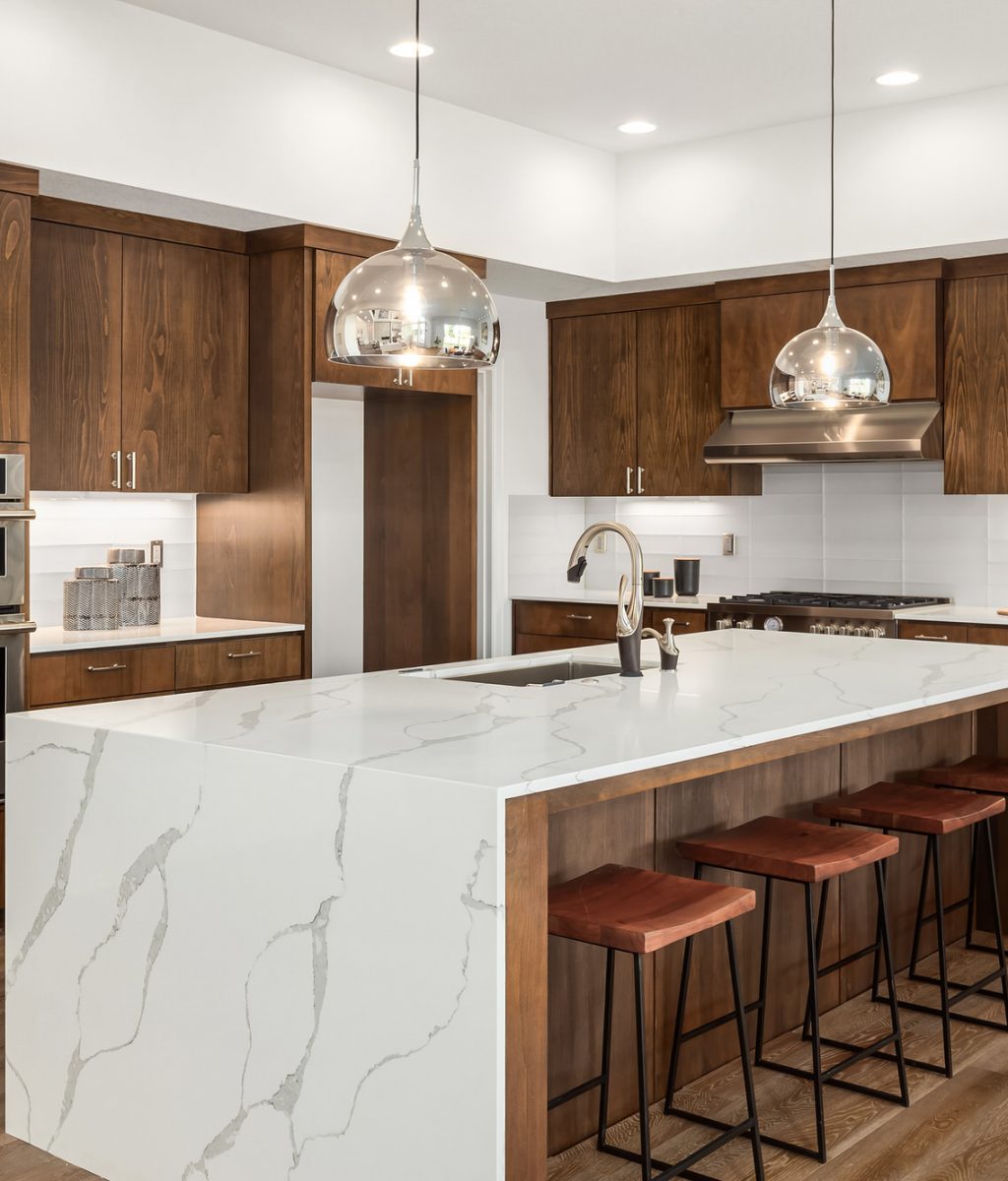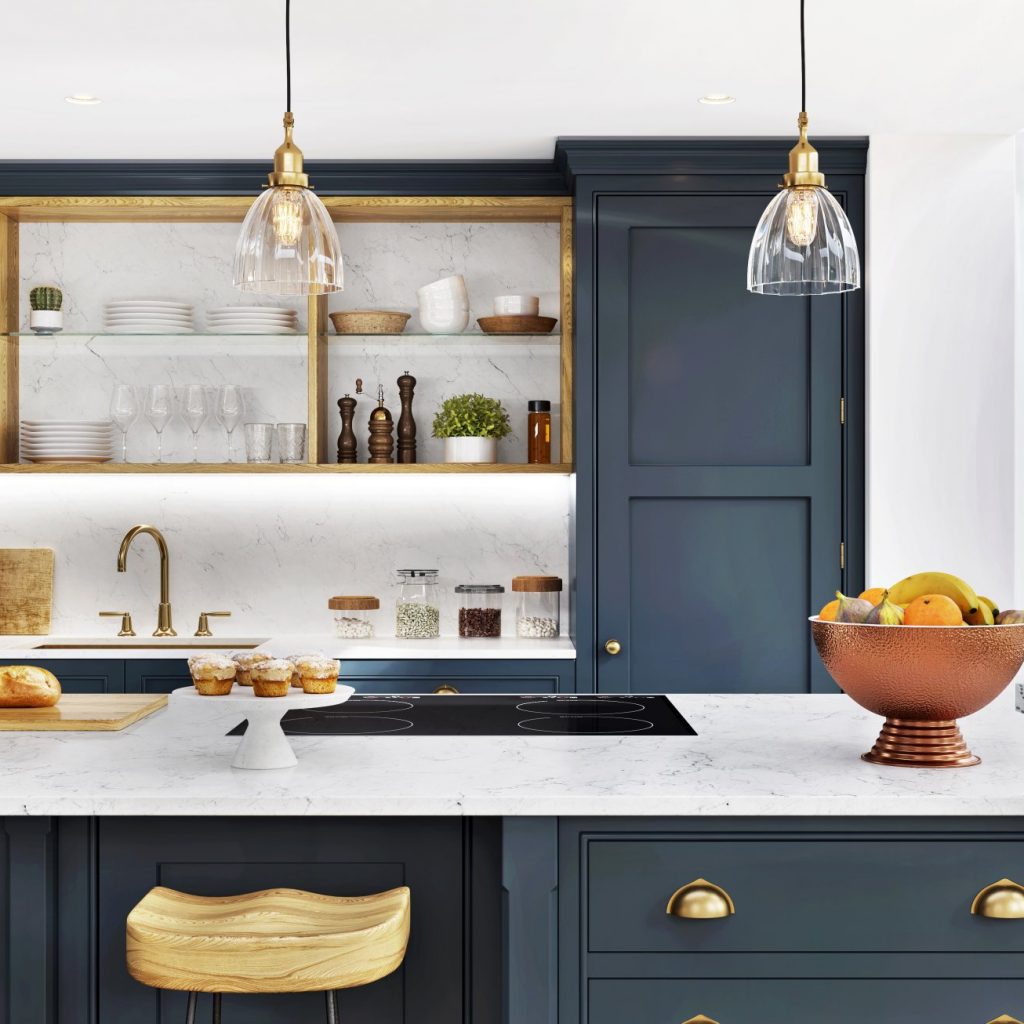Quartz countertops are offered in a honed, sandblasted or embossed treatment.
Honed countertops have a softer, matte look that can take on the look of slate, concrete or limestone.
For the sandblasted finish, a high-pressure jet applied to the surface produces a smooth abrasion and leaving the material with a slightly scratched (but not rugged) surface. The original color tones and veins will become slightly dulled using this treatment.
The embossed finish offers a slightly leathered look and texture with a soft feel.
Because quartz is a man-made product, quartz countertops are available in just about any color you desire—from whites to blacks, tan and neutrals, to reds, blues and more.
Because quartz is one of the hardest minerals on earth, quartz countertops are undeniably one of the most durable option for kitchens. Quartz won’t etch or scratch like its natural counterparts and is quite resistant to staining and heat.
While quartz is extremely durable, they are not indestructible. Over time, quartz countertops may fade if exposed to direct sunlight.
How much maintenance is involved with quartz countertops?
Unlike some granite or marble, quartz countertops never need to be sealed. Just wipe with a mild soapy water for daily upkeep and surface stains can be removed using a gentle cleansing scrub. Never use harsh sponges or scouring pads which can dull the surface.
Quartz is nonporous making it a food-safe surface and stain-resistant finish. Quartz countertops are a great choice for families with children who might tend to spill lots of drinks on the countertop’s surface.
Yes, however exposure to direct sun can cause colors to fade or the countertop to warp or split over time. Covered , protected spaces are best when using quartz outdoors.

